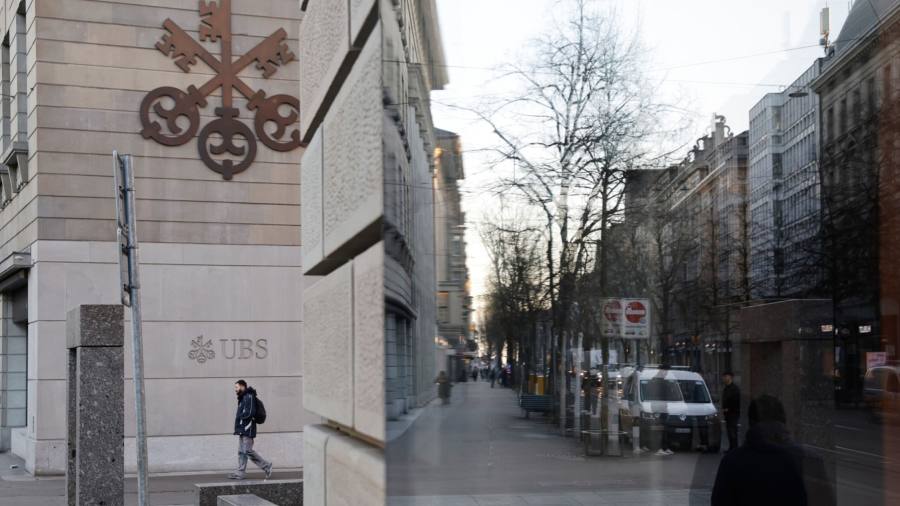Receive free UBS Group AG updates
We’ll send you a myFT Daily Digest email rounding up the latest UBS Group AG news every morning.
UBS is facing a new legal challenge to its takeover of Credit Suisse after a group of leading Swiss investors joined a class-action lawsuit, the latest sign of the domestic backlash to the deal.
Ethos Foundation, which represents institutional investors owing about 5 per cent of stock in both banks, said on Tuesday it was signing up to a campaign led by LegalPass, a start-up based in Lausanne.
The takeover, which was orchestrated by Swiss authorities in March, denied shareholders in both banks a vote on the deal. The SFr3bn ($3.35bn) UBS paid for Credit Suisse was less than half the bank’s market value on the final trading day before the deal was sealed.
Under the agreement, Credit Suisse investors received one UBS share for every 22.48 they owned in the failed bank.
“Since [financial regulator] Finma has decided to withdraw shareholders’ voting rights, the only way to challenge the exchange ratio is to go to court, as LegalPass intends to do,” said Vincent Kaufmann, chief executive of the Ethos Foundation.
The LegalPass campaign, which is the first Swiss shareholder suit to challenge the terms of the takeover, aims to recover a cash payment for claimants based on the difference between a value of Credit Suisse that would be set by the court and the one paid by UBS.
The suit joins a growing list of legal claims over the deal. At least two law firms — Quinn Emanuel Urquhart & Sullivan and Pallas — are representing bondholders who were controversially wiped out when $17bn of additional tier 1 securities were written down as part of the transaction.
Credit Suisse staff have also enquired about launching legal action after their bonuses linked to the AT1s were also wiped out. Lawyers in the US, meanwhile, are working on cases that target individual former managers at Credit Suisse for their part in the bank’s downfall.
The challenges come at a time when a public backlash to the deal is building within Switzerland ahead of national elections in October.
More than three-quarters of polled voters want the megabank to be split up, while Swiss parliamentarians voted against the SFr109bn financial support package underlying the deal in a largely symbolic move.
UBS did not respond to a request for comment by the time of publication.
The Financial Times reported on Monday that UBS executives aimed to make clear at the bank’s second-quarter results next month that its rescue of Credit Suisse would not rely on funding from Swiss taxpayers.
Read the full article here




